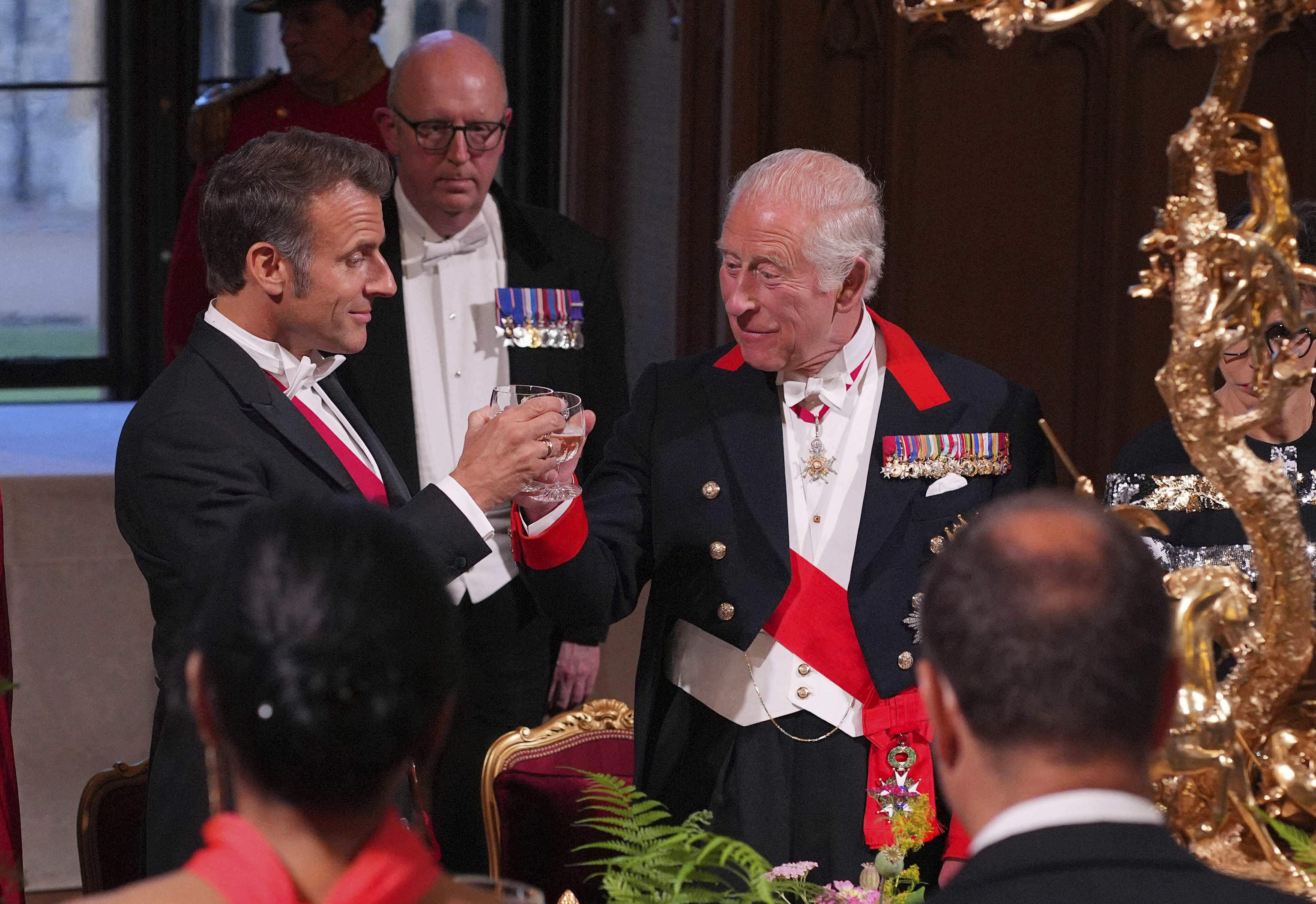Emmanuel Macron concluded on Tuesday with epic tones his speech before the British Parliament, gathered in a joint session -commons and lords- in the Royal Gallery of the House of Lords. Surrounded by portraits of British monarchs and, above all, with two paintings commemorating the French defeats at Trafalgar -this one also involving Spain- and Waterloo, the French President's speech was another step in the new post-Brexit relationship that the British Labour government of Keir Starmer is trying to build.
Not in vain, this is the first State visit by a EU leader to the United Kingdom in the years since Brexit. The bitterness of the breakup began to fade with the last Conservative Prime Minister, Rishi Sunak, and Starmer has been moving decisively in that direction, also helped by circumstances - the Russian invasion of Ukraine and the hostility of the US under Donald Trump towards Europe - and by the work of King Charles III, who made his State visit to France in 2023 and now hosts Macron at Windsor Castle, as Buckingham Palace is under renovation. The French head of state took a carriage ride with the monarch, with whom he had lunch in the company of Queen Camilla, as a prelude to the gala dinner on Tuesday night. And before addressing Parliament, he laid a wreath at the Unknown Soldier Monument.
The special relationship between the two countries, therefore, seems to be a reality, both for bilateral reasons - as the French President pointed out, French companies are collectively the second largest employer in the UK, and both nations share an issue of illegal migration - and for European reasons, because ultimately they are the only two nuclear powers in the old continent and their military budgets account for 40% of all spending in that area in the region.
But Macron's words were more generous in promises than in actions. The French President offered London to work on a third way marked by independence from the United States and China. Much of his words were a call to collaborate "shoulder to shoulder" in Defense, "as we did a few years ago in the Sahel", although that is an example where it is better not to go into details considering that the region has ended up falling under the influence of Russia.
Macron implicitly buried the relationship between Europe and the US, placing it, more or less, on the same level as China. If the UK and France want to "build a sustainable future for their children," they must "unhook their economies and societies from that dual dependency." It was a very clear message in a room where the belief in the 'special relationship' between London and Washington still persists, not so much out of conviction but because eighty years of strategic dependence on the United States cannot be undone overnight. Macron's idea also arouses some suspicion among the British political class, where, since De Gaulle led the French resistance during World War II, it has been considered that French calls for European unity hide the fact that, for Paris, that unity must be led by France.
Macron promised more announcements of Defense collaboration, possibly on this trip, but did not go into details. And in Ukraine, he once again guaranteed European support for Kiev. In fact, his trip concludes on Thursday with a virtual summit in which, among others, the Ukrainian President, Volodymyr Zelensky, the German Chancellor, Friedrich Merz, and the Italian Prime Minister, Giorgia Meloni, will participate.
But the most thorny issue is not Ukraine, but the illegal immigration from France to the UK through boats crossing the English Channel. Both countries are negotiating against the clock to reach some kind of agreement on this trip - or at least a general understanding - based on the idea of "one in, one out," whereby the UK would return immigrants who arrive illegally by crossing the English Channel to France and in exchange would accept an equivalent number of pre-assessed asylum seekers.
Macron gave a mixed message, acknowledging the problem of illegal immigration but also calling for an end to "demonizing" undocumented migrants, while pointing out that not only France but also the EU has a role in the issue.
The French President reminded the "first entry" nations, that is, Italy, Spain, Greece, Malta, and Cyprus, meaning they are the gateway to the EU for undocumented migrants, that they fear that a bilateral agreement between France and a non-EU country like the UK could undermine the European Pact on Migration and Asylum, which seeks to distribute the migration burden fairly among member countries. Paris has made gestures towards London, for example, authorizing the French police to damage the inflatable boats carrying migrants. But a comprehensive plan to combat human trafficking seemed complicated last night.
In other, less contentious areas, the relationship seems to be strengthening. The UK and France are leaders in satellites and technology in Europe, opening the door to further collaboration in that direction. This is something that the French once again positioned as part of an independent Europe from Washington and Beijing. "What is at stake today is Europe's ability to invest in key future technologies to avoid strategic dependencies and abandonments that put us in danger of a slow death," he said, in a dramatic reference to China (for dependency) and the US (for abandonment). It was a message that clashed with the policy of his host, who has made every effort to turn the UK into a 'bridge' between Trump's United States and Europe.
